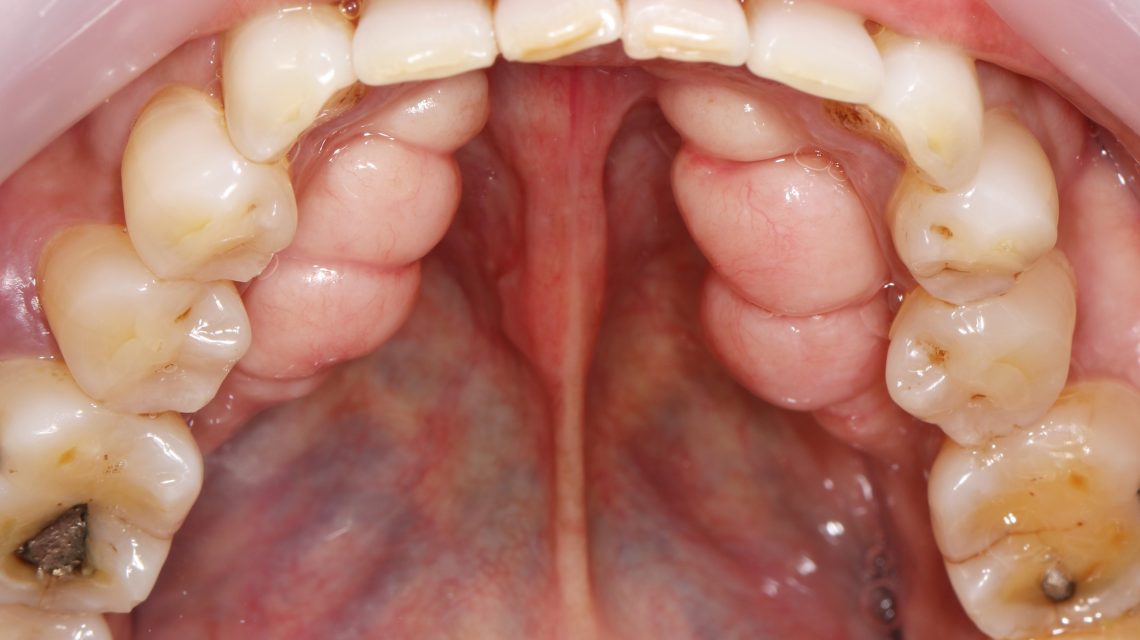Tori are benign bony growths that form on the upper or lower jaw inside the mouth, often on the palate or along the tongue side of the lower jaw. They are typically harmless, slow-growing, and usually do not require treatment unless they interfere with speech, eating, or fitting dental appliances. They are, however, an important finding and their cause does need to be addressed.
Excessive bone growth under extreme force, such as in the case of bunions or tori, is primarily driven by the body’s adaptive response to mechanical stress. Here’s how the mechanism generally works:
1. Mechanical Stress and Wolff’s Law
Wolff’s Law states that bone in a healthy person will adapt to the loads under which it is placed. When a particular area of bone is subjected to repeated or excessive mechanical stress, the bone tissue in that area becomes thicker and stronger over time to better resist the force. In the case of tori, this mechanical stress often comes from abnormal teeth mechanics, such as a misaligned teeth, which contact incorrectly, leading to clenching or grinding.
2. Microtrauma and Remodeling
Repeated stress or trauma causes micro-fractures or micro-damage in the bone. The body responds by initiating a remodelling process, where osteoclasts break down damaged bone, and osteoblasts build new bone tissue. However, if the stress is continuous and excessive, the bone remodelling process may not only repair the micro-damage but also lay down more bone than usual, leading to the formation of an exostosis (an abnormal bony outgrowth), such as a tori.
3. Inflammation and Soft Tissue Changes
Chronic mechanical stress can also lead to inflammation of the soft tissues around the temporo-mandibular joint (TMJ). This inflammation can stimulate bone growth as part of the body’s attempt to stabilize the joint. Over time, the bone may grow outward, creating the characteristic bump of a tori.
The excessive bone growth seen in tori is the result of the body’s attempt to adapt to and compensate for abnormal mechanical stress, influenced by factors like malocclusion, para-function, and abnormal forces on teeth.
Early detection and management of tori is a critical part of prevention further growth. As bone grows excessively, it can make it difficult to restore teeth, obstruct tongue, further grinding and tooth wear, increased clenching and tooth fractures, and need for more extensive dental treatment.

